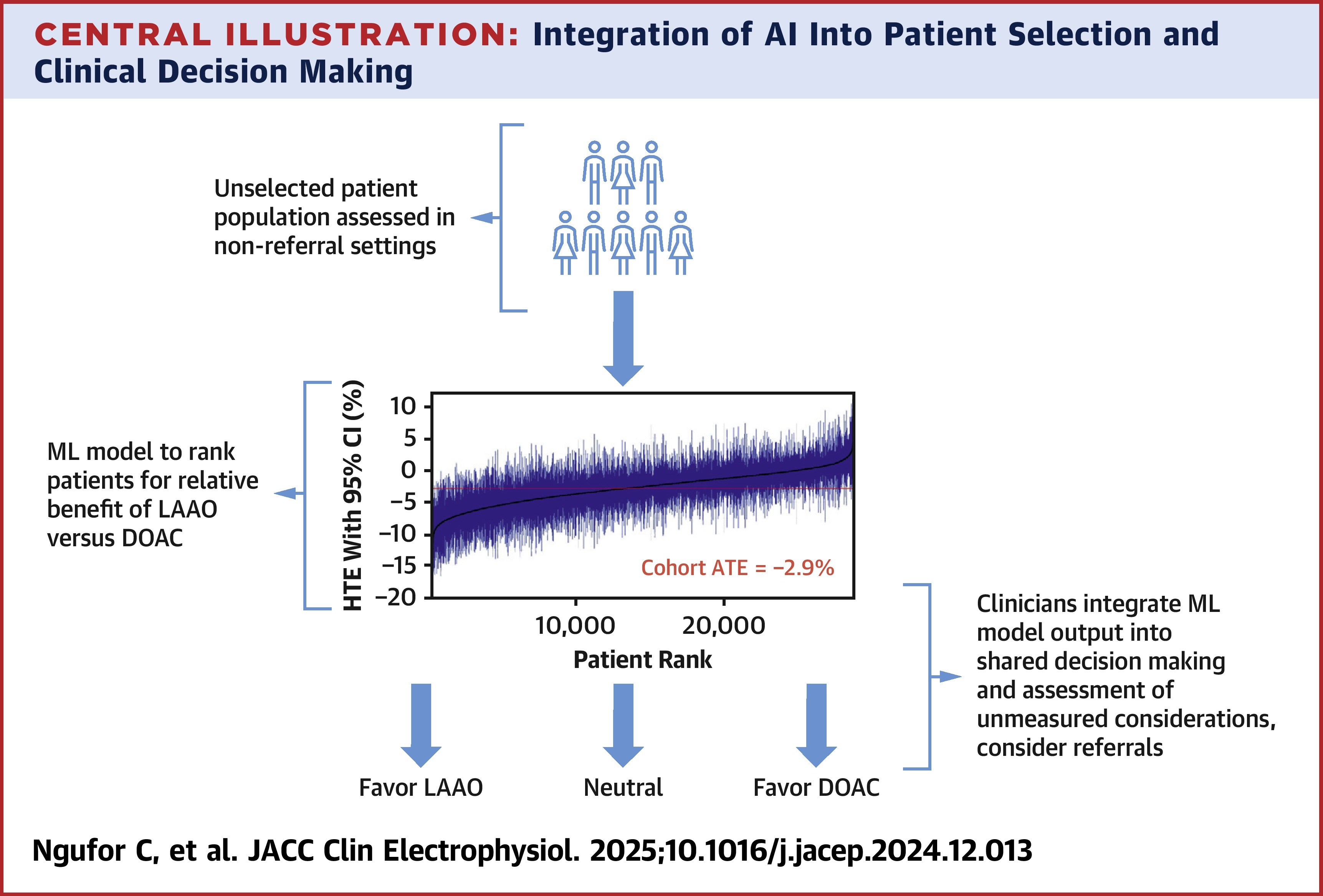New Machine Learning Algorithm Identifies Patients Likely to Benefit From LAAO vs. DOAC
A novel causal machine learning algorithm can determine which patients with atrial fibrillation (AFib) are more likely to benefit from left atrial appendage occlusion (LAAO) compared with direct-acting oral anticoagulant (DOAC) therapy, according to a study published Feb. 12 in JACC: Clinical Electrophysiology.
Clinical guidelines recommend lifelong drug therapy for stroke prevention in patients with AFib. However, DOACs increase bleeding risk and lifelong adherence is poor. LAAO is an attractive alternative but determining how to select the best candidates remains unclear. Therefore, Che Ngufor, PhD, et al., conducted a retrospective cohort analysis using recent data-driven causal machine learning approaches to develop an algorithm using numerous predictors simultaneously to identify patients more likely to benefit from LAAO than from DOAC therapy.
Researchers identified 744,190 patients with AFib, using U.S. claims data from OptumLabs Data Warehouse, who were treated with either an LAAO (n=14,465 [1.9%]) or DOAC therapy between March 13, 2015, and Dec. 31, 2019. Propensity score matching was used to develop a cohort of patients who had 107 similar baseline characteristics. In the matched cohort of 28,930 patients (mean age, 76.8 years; 40% women), the mean CHA2DS2-VASc score was 5.8.

The primary outcome was a composite of ischemic stroke or systemic embolism, major bleeding and all-cause mortality. Results showed no difference in the primary outcome with LAAO compared with DOAC at one year (average treatment effect, –0.68%), but a lower risk at the end of two years (average treatment effect, –2.9%). After two years, 30.1% of the overall cohort was classified as potentially benefiting from LAAO, 69.7% as neutral and 1.4% were potentially harmed by LAAO. Notably, older adults with more comorbidities were more likely to benefit from LAAO compared with DOACs.
The authors conclude that the algorithm developed from this study "can support clinical decision-making to determine which patients should be referred to subspecialists for further examination and discussion of LAAO."
Clinical Topics: Arrhythmias and Clinical EP, Atrial Fibrillation/Supraventricular Arrhythmias
Keywords: Atrial Appendage, Clinical Decision-Making, Artificial Intelligence, Machine Learning, Atrial Fibrillation
< Back to Listings
